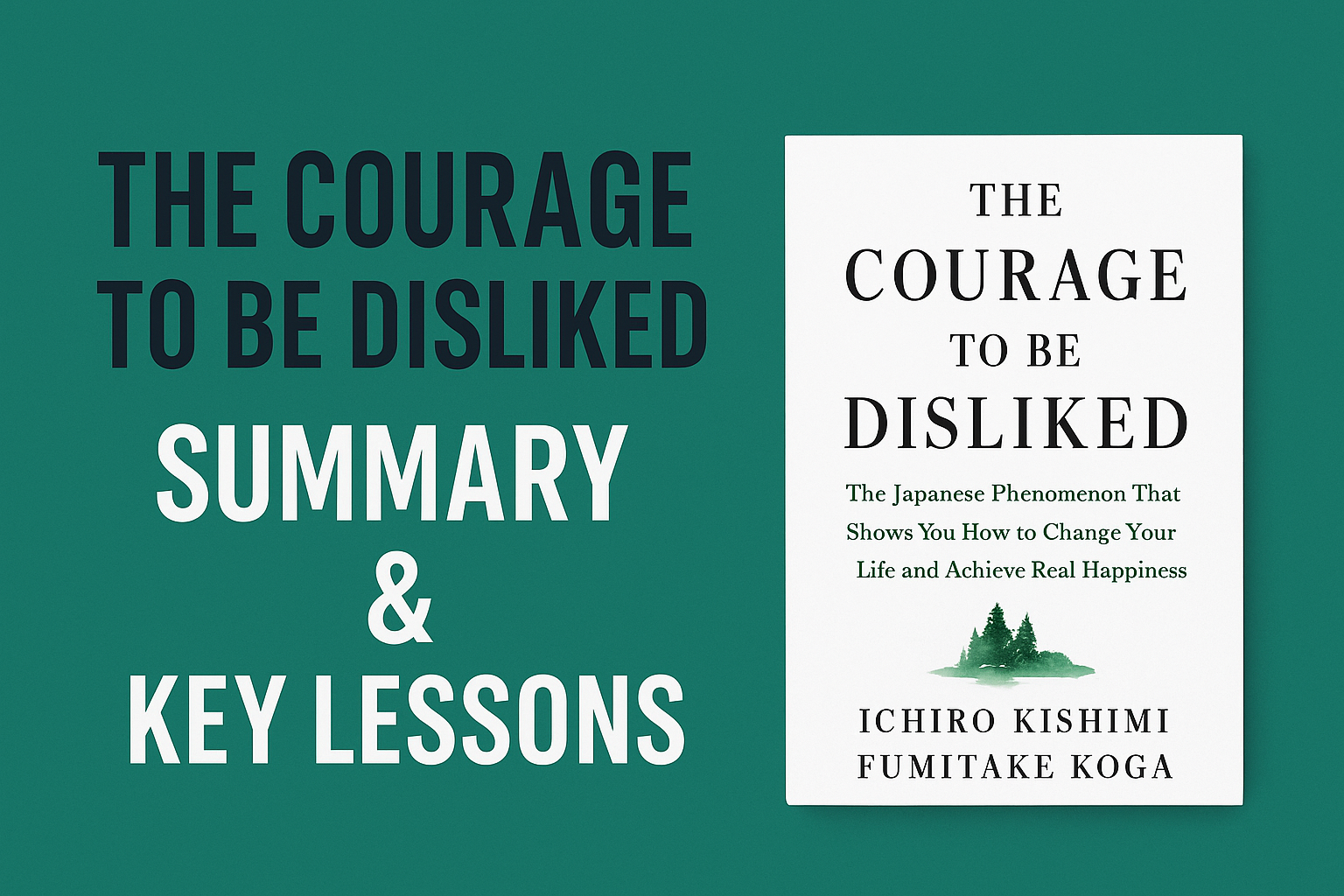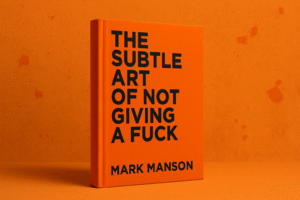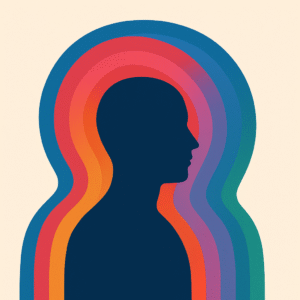Have you ever felt trapped by your past, as if every mistake or failure was a chain holding you back? I remember spending years blaming circumstances, thinking, “If only things had been different, I’d be happier.” But one day, it struck me maybe the problem wasn’t my past at all. Maybe the power to change my life had always been in the present.
That realization came after reading The Courage to Be Disliked by Ichiro Kishimi and Fumitake Koga, a book that isn’t just a self-help guide it’s a philosophy for living freely. Based on Alfred Adler’s psychology, it challenges everything we assume about trauma, failure, and approval. Most importantly, it shows that real happiness isn’t something you wait for it’s something you actively choose, starting now.
The Problem: Why We Struggle to Be Free
We live in a world obsessed with approval, validation, and comparison. Many of us:
- Hold onto trauma, letting it define our present.
- Seek recognition from others, measuring our worth by applause.
- Fear being seen failing, so we avoid challenges entirely.
- Think happiness depends on changing circumstances or fixing the past.
The problem is simple but profound: we confuse external validation with internal freedom. Until we break this cycle, happiness will remain elusive.
Insight: The Core Principles of Adlerian Psychology
Alfred Adler’s psychology teaches that:
- All problems are interpersonal relationship problems.
- Unhappiness is a choice; our present actions determine our lives.
- We are not the center of the world; contribution and social interest create fulfillment.
- The past does not define us; teleology—the study of purpose guides our choices.
These ideas are presented through dialogues between a young man, full of doubts, and a wise Philosopher who challenges him to rethink everything about happiness, responsibility, and freedom.
Lesson 1: Let Go of Trauma and Focus on Purpose
Many of us spend years dwelling on painful experiences, telling ourselves, “This is why I am the way I am.”
Adlerian psychology calls this approach Etiology living according to causes. In contrast, Teleology focuses on purpose: why we act as we do, and what goals we’re pursuing.
Key takeaway: Your life is shaped by present choices, not past experiences. Right now, you have the power to act, to change, and to shape your destiny.
Lesson 2: Understand That All Problems Are Interpersonal
All life problems stem from interpersonal relationships. We all have two core objectives:
- To belong
- To feel significant
Avoiding interpersonal problems or life tasks causes unhappiness. Feelings of inferiority, self-criticism, and fear of judgment are social struggles.
Key takeaway: All life problems are social, and managing them wisely rather than avoiding them is essential for true happiness.
Lesson 3: Focus on Your Own Life Tasks
You are responsible for your own life; others are responsible for theirs.
Seeking recognition or intervening in someone else’s life only leads to resentment. Focus on your tasks, support others without controlling them, and free yourself from the burden of others’ expectations.
Practical tip: Ask yourself: “Whose task is this?” If it’s not yours, step back. Offer support, but don’t take control.
Lesson 4: Contribute to Society Without Seeking Recognition
We are not the center of the world. Real happiness comes from contributing to others—family, friends, community, society. Striving for recognition makes us self-centered; shifting focus to social contribution brings fulfillment.
Key takeaway: Shift your mindset from self-centered to society-centered. Your value lies in what you contribute, not what others think of you.
Lesson 5: Live in the Present and Apply Your Unique Gifts
Self-consciousness and overthinking prevent action. Focus on your unique gifts and apply them to serve society. Shift from “I” to “we.” When your purpose is contribution, fear of failure disappears.
Practical tip: Identify one meaningful action today. Serve someone, create something, or contribute in a small but tangible way.
Integrating These Lessons Into a Daily Routine
To truly embody these principles, create a daily habit system that reinforces freedom, contribution, and focus. Here’s a professional approach:
- Morning Reflection (5–10 minutes)
- Ask: “Whose tasks are mine today?”
- Define your top 3 life tasks for the day.
- Focus Blocks (1–2 hours)
- Work on meaningful tasks without distractions.
- Apply teleology: focus on purpose, not past failures.
- Interpersonal Awareness Breaks (10 minutes)
- Observe interactions: am I seeking recognition or contributing authentically?
- Adjust approach if needed.
- Contribution Practice (Evening, 15–20 minutes)
- Engage in a small act of service: help a colleague, mentor, or volunteer.
- Reflect: “How did I contribute today?”
- Nightly Review (5 minutes)
- Ask: “Did I live for my life tasks today?”
- Celebrate small wins, adjust strategies for tomorrow.
Tip: Consistency is key. Even 30–45 minutes daily of focused reflection and contribution will gradually reshape your mindset and daily habits.
Reflection: How This Changed My Life
By applying these lessons, I stopped carrying other people’s burdens and focusing on approval. Challenges became opportunities. Anxiety from comparison faded. Tasks I avoided became chances to grow. Most importantly, I realized: the courage to be disliked is my ticket to freedom.
Call-to-Action: Start Today
Ask yourself:
- Whose task is this?
- Am I acting for approval or purpose?
- How can I use my gifts to serve today?
Small, intentional actions lead to lasting change. Freedom and happiness are available now—if you have the courage to choose them.
Key Takeaway Quote
“The courage to be happy also includes the courage to be disliked.” – Alfred Adler
Happiness, freedom, and fulfillment are choices, grounded in the present and in service to something larger than yourself.
References / Further Reading
- The Courage to Be Disliked by Ichiro Kishimi & Fumitake Koga
- Alfred Adler’s writings on Individual Psychology
- Simon Mac Odemba’s practical takeaways from Adlerian thought




